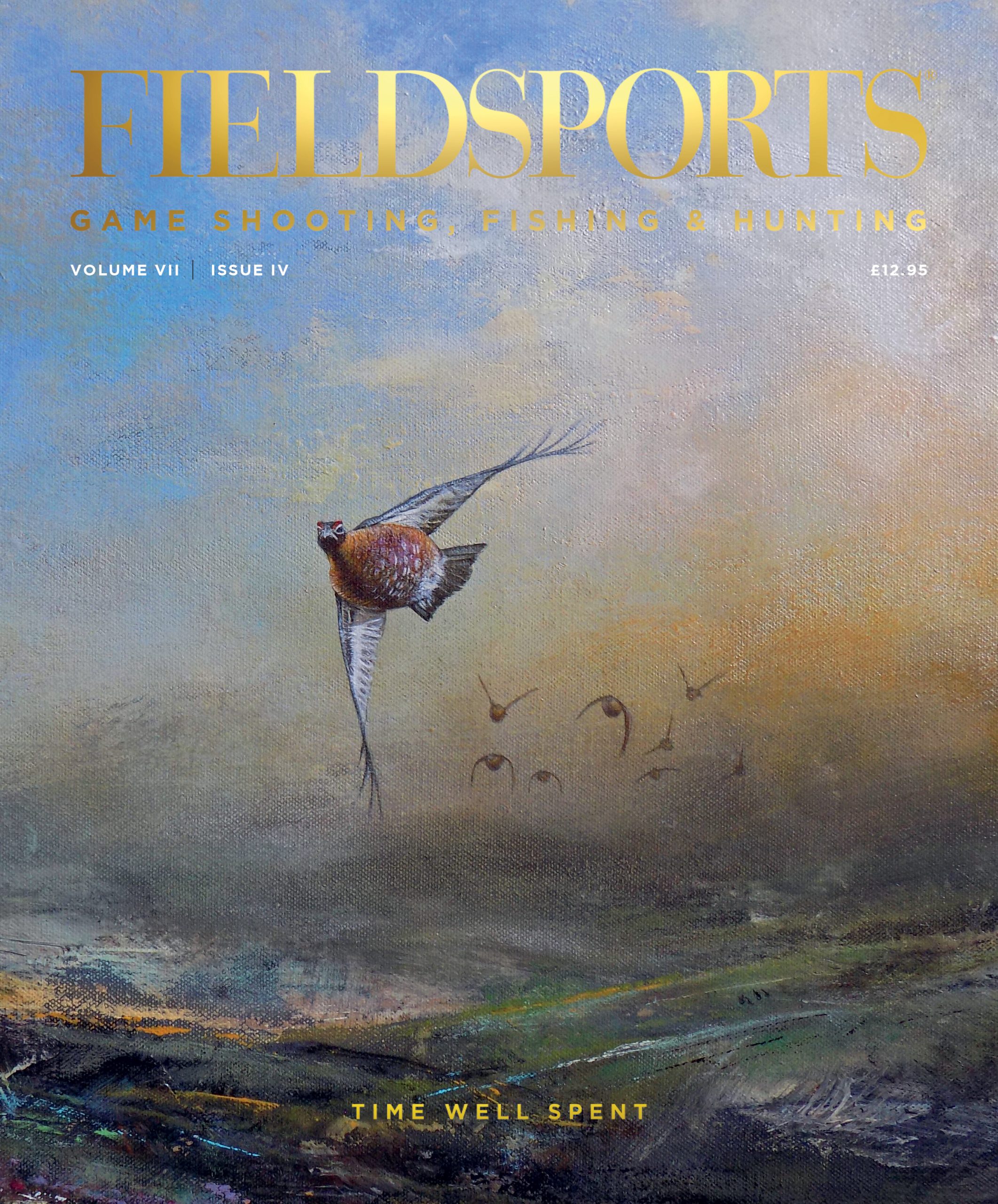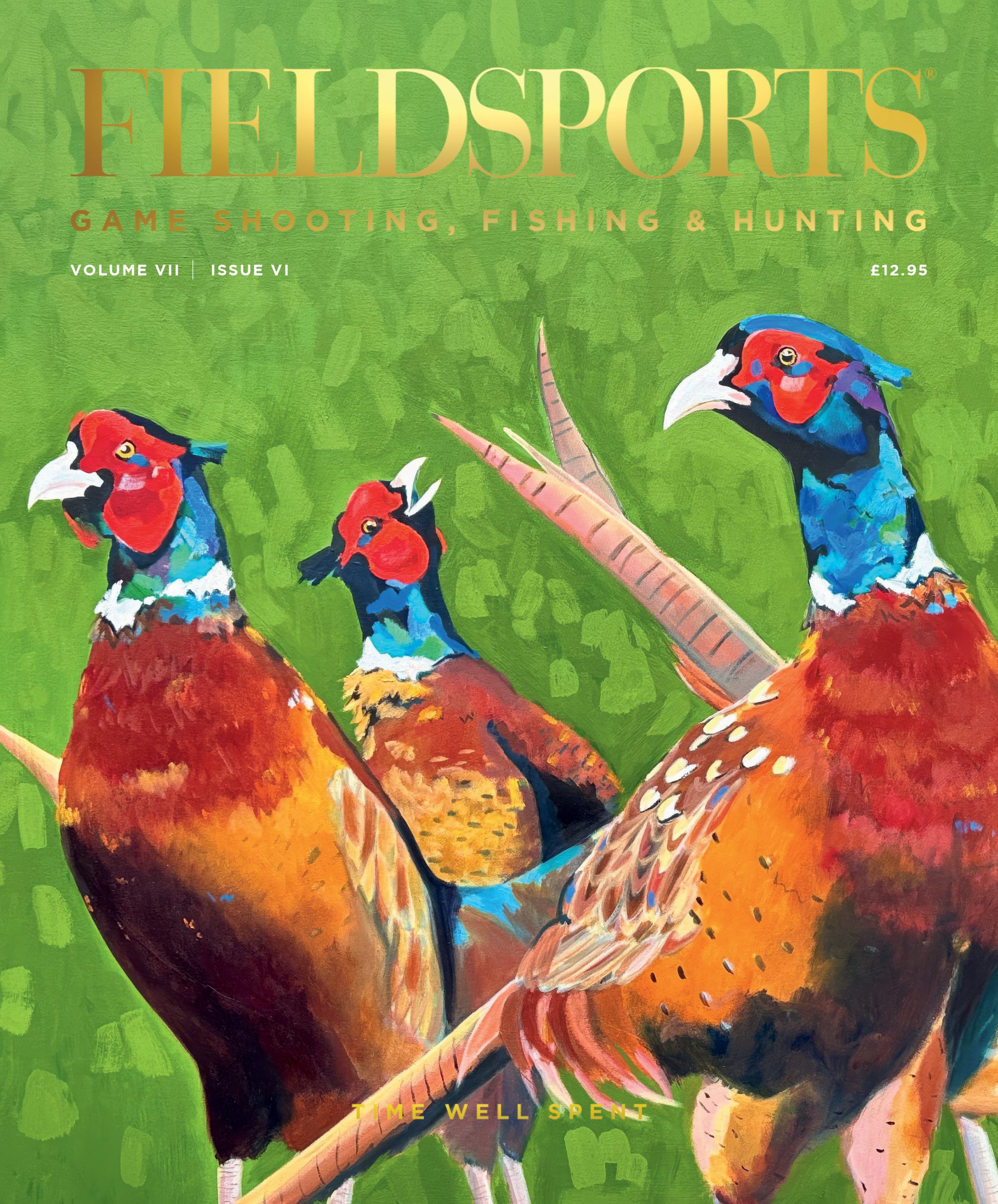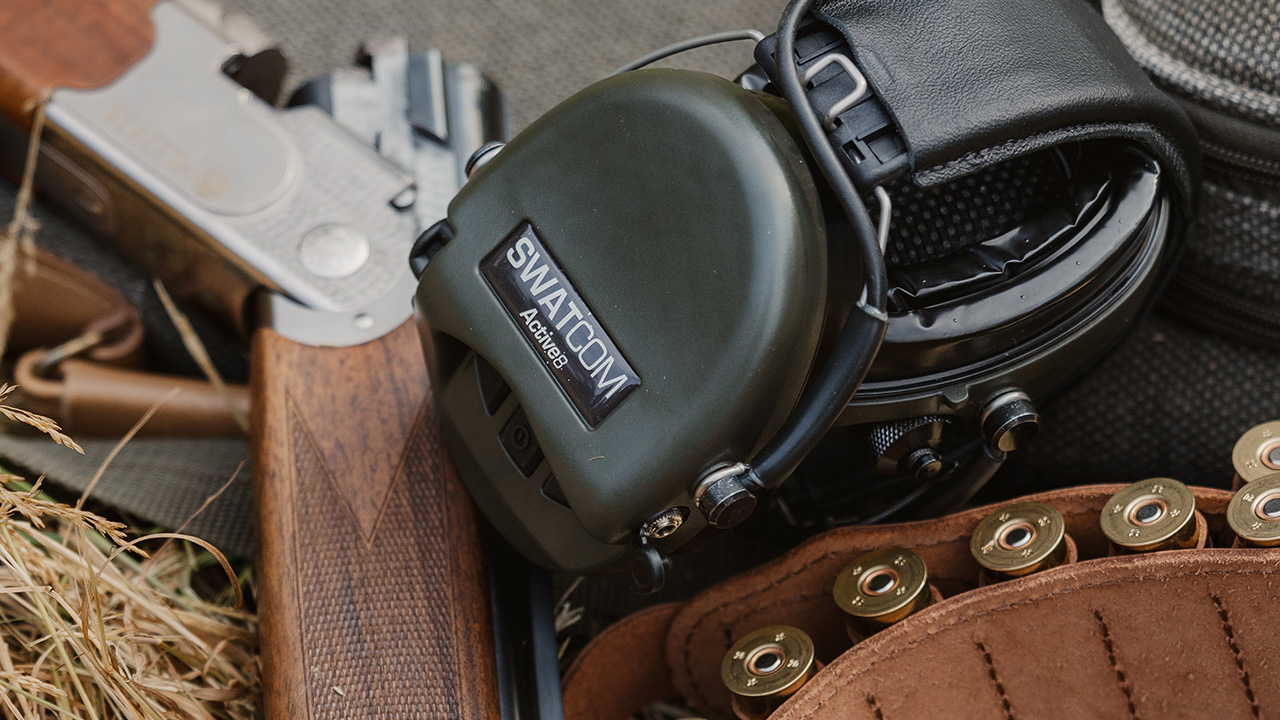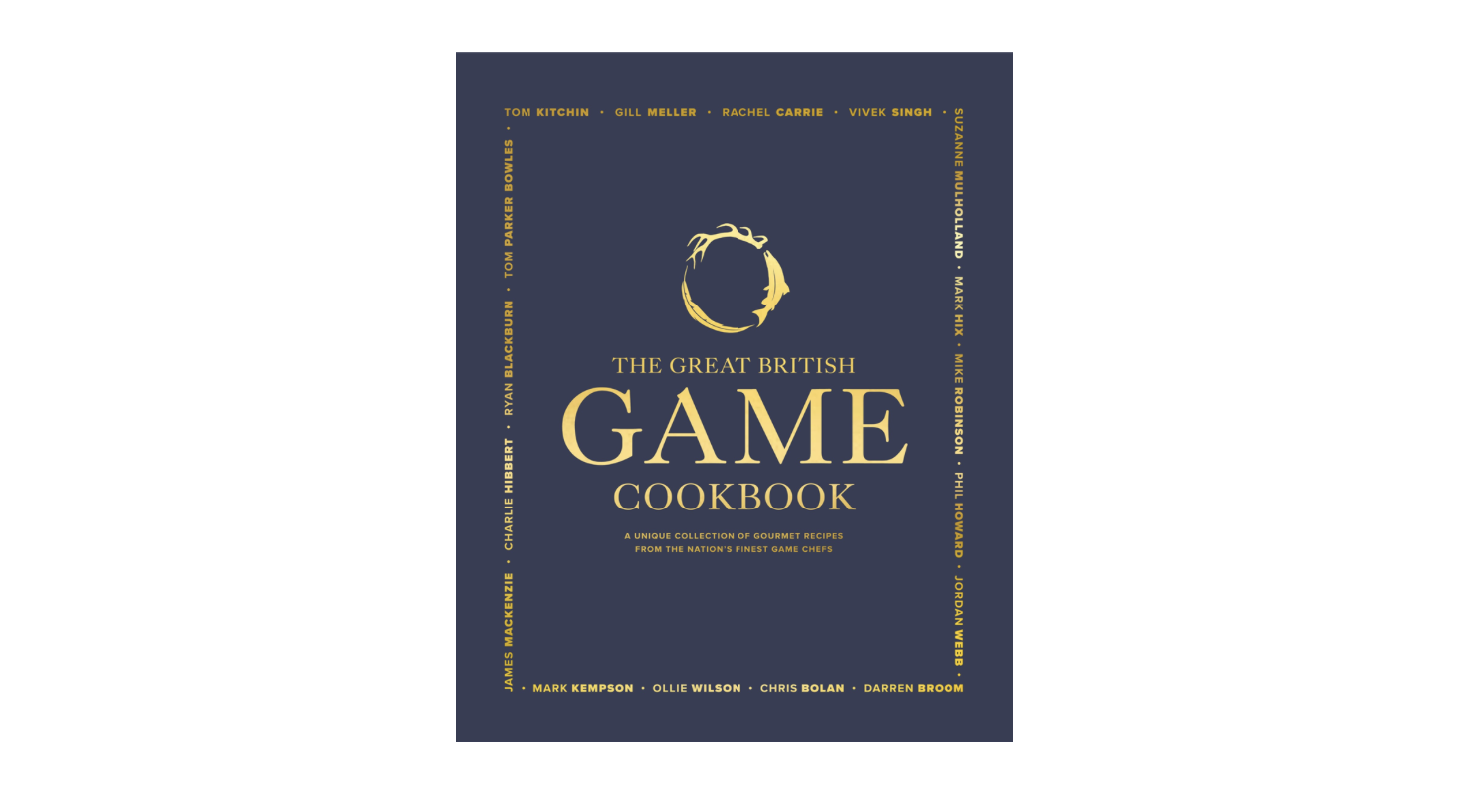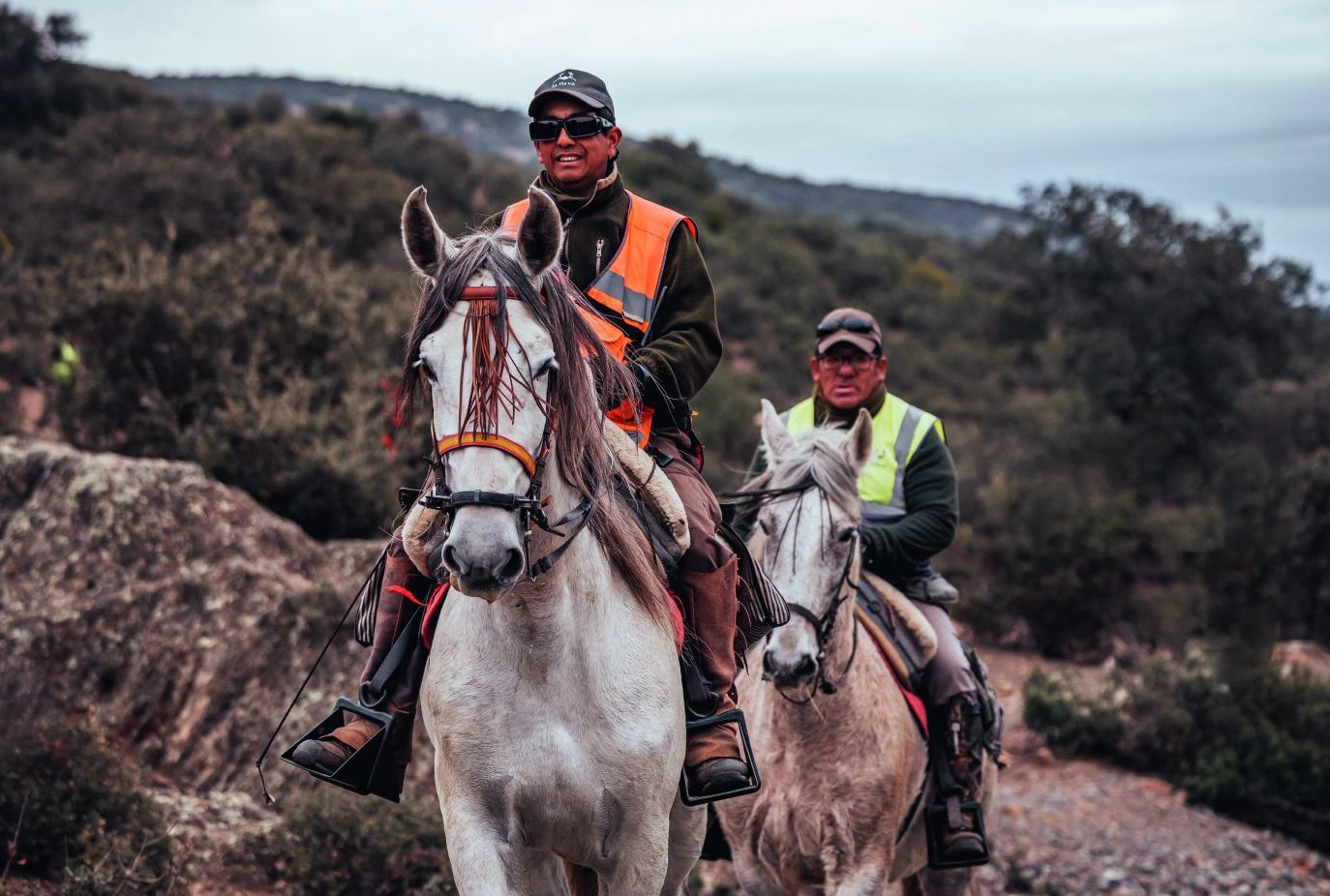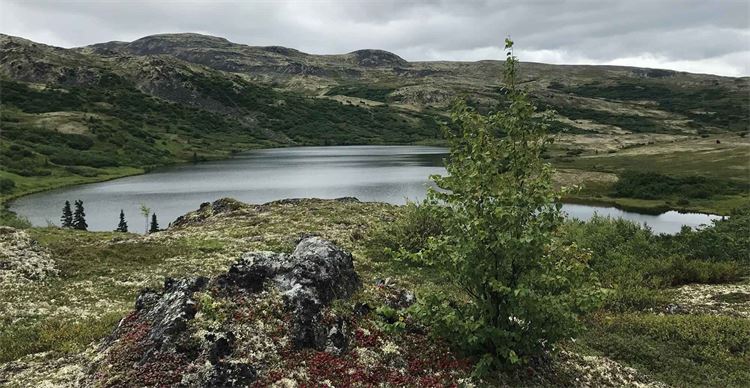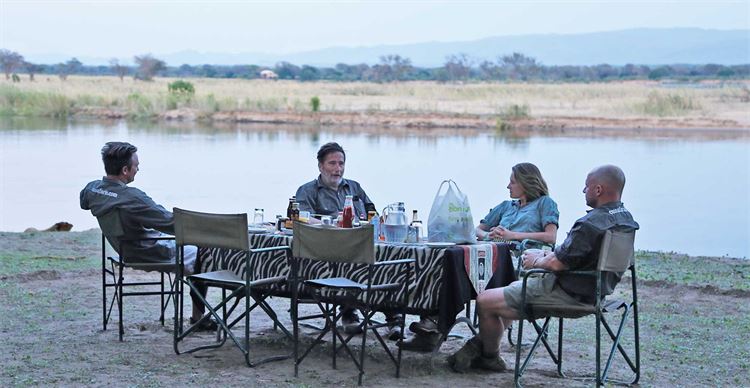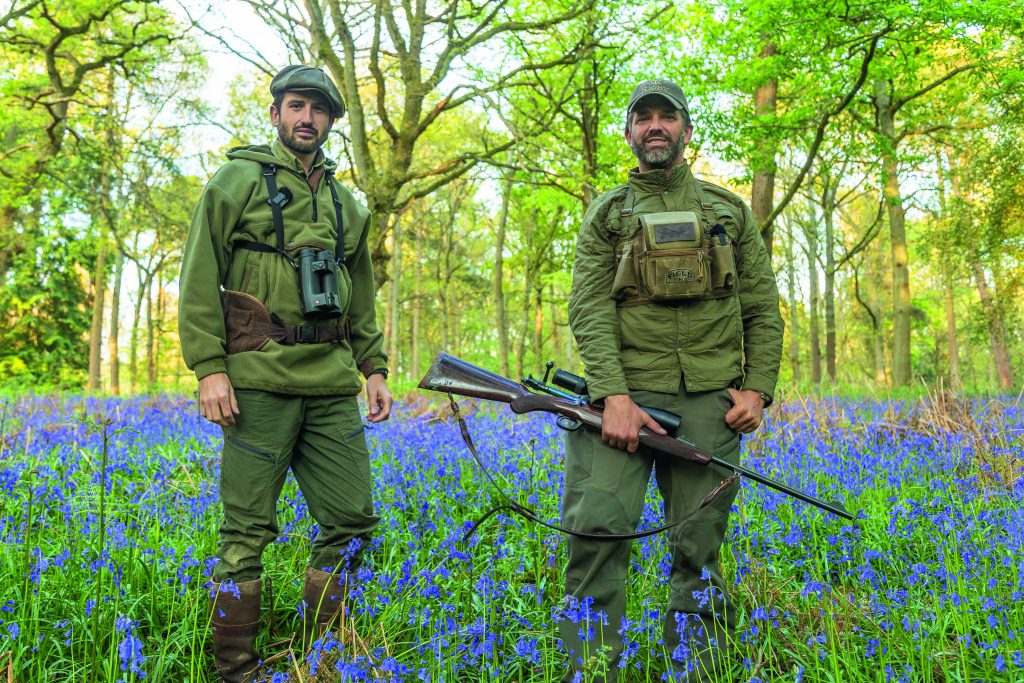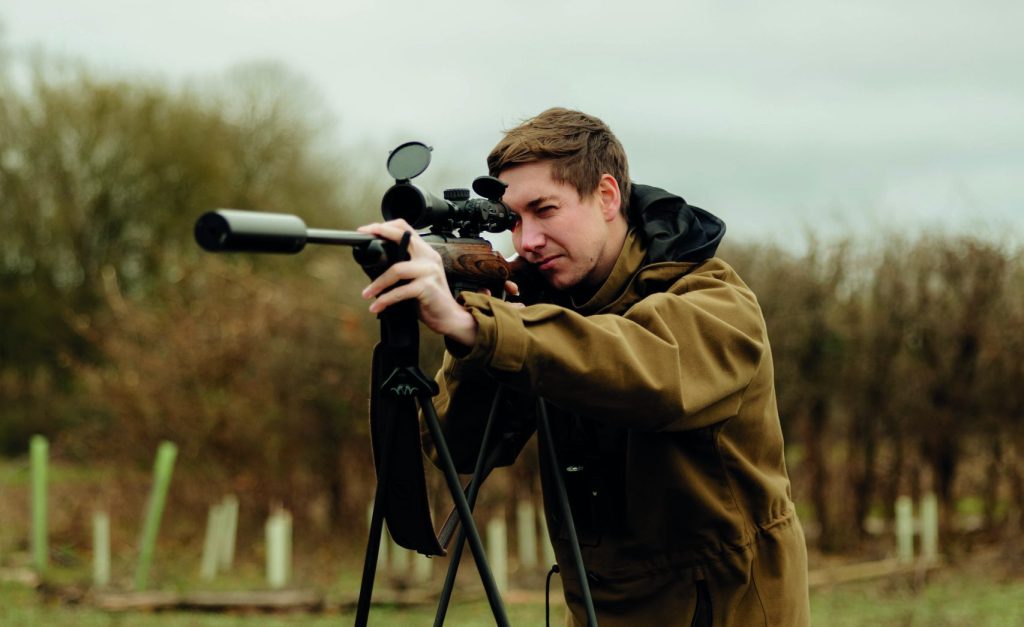The unsuccessful hunt
In hunting, the outcome doesn’t determine the substance of the experience, it is just one detail of it, says Lady Katie Percy, as she reflects on her own experiences and considers the myriad other fulfilling factors.
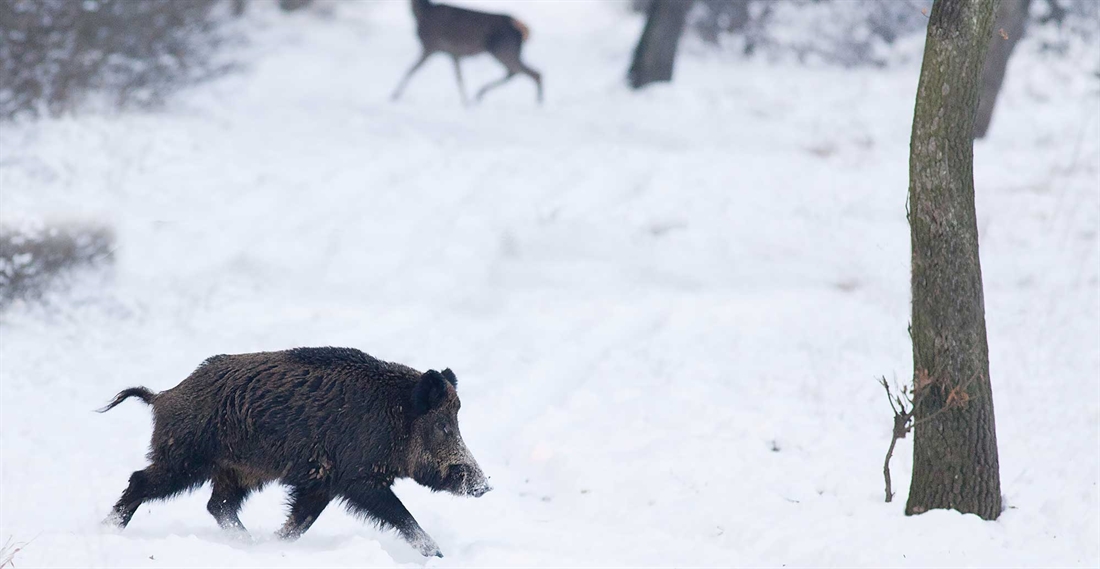
I’m huddled in a forest in southern Bavaria, surrounded by old spruce trees. It’s snowing and I’m shivering. I’ve been waiting in this stand for nearly three hours and I’m longing for a piping hot bath and the weisswurst that I know are being prepared for dinner back at the house.
I’m waiting for wild boar but resigning myself to the fact that it’s unlikely anything will come in these last 20 minutes.
After two days in this forest, I will return home empty-handed from a resoundingly unsuccessful hunt. But despite the cold I am not miserable, despite the inactivity I am not bored, and despite the fact that my brother shot four pigs and a fallow deer this morning, I am not resentful. I don’t feel that I’m wasting my time, nor that I have failed. In fact, I’m loving this experience. How can an unsuccessful hunt be fulfilling?
The answer comes immediately; for me, silence, solitude, being in wild places, and seeing wild animals in their natural environment is a joy. But that raises another question: if I’m more interested in the immersive experience than the killing, why don’t I just go hiking and camping, in which case I’d be without the added weight of a rifle?
I believe it’s in our nature, even our genes, to enjoy hunting – whether there is a prize at the end of the hunt or not. As Charles Dickens observed in Oliver Twist when the crowd pursued the young pickpocket, “There is a passion for hunting something deeply implanted in the human breast.” Humans have hunted for the pleasure of it since Homer sung The Iliad. Since Nomadic hunter-gatherers started to settle in communities and animals were domesticated millennia ago, we have had alternative ways of getting protein yet we have continued to hunt. In almost every society around the world, hunting has been a pastime – something done for pleasure of the sport rather than work.
Sport is good when it’s hard, a challenge, when you must give it your all. Bad sport is when it’s too easy; an effortless win does not bring the same satisfaction as losing a tough fight. Many contemporary hunters choose to restrict their advantages by using antiquated weapons like bows, muzzle-loaders, open sights for Cape buffalo, small calibres for small animals etc. We shun technological advances so the contest is not too unequal. I am intensely competitive, against other people and myself, yet I accept – and expect – that I will be defeated from time to time. Knowing that the wary animal, which from the moment of birth suspects danger is lurking behind every tuft of grass, could easily have escaped, makes it all the sweeter when you triumph. Likewise, it is satisfying to hit a fast, high-flying pheasant in the head precisely because it’s so difficult, and there’s no shame in missing it. It’s hard to see where the pleasure is in shooting at thousands of birds wafting just above your head.
In sport, the outcome doesn’t determine the substance of the experience, it is just one detail of it. In fact, if it was guaranteed that we would kill the quarry every time we ventured forth with a weapon, the exercise would lose much of its appeal; indeed, I don’t think it could be called ‘hunting’. The Spanish philosopher José Ortega y Gasset makes the point more eloquently in Meditations on Hunting: “Sport is the effort that is carried out for the pleasure that it gives in itself and not for the transitory result that the effort brings forth.”
There are any number of reasons to find joy in the substance of the hunting experience. Being outdoors plays a large part, as does the physicality of a simple life of active days and the restful sleep that comes to a body bruised and exhausted. After an unsuccessful hunt for Dall sheep in the mountains of Alaska last year, I could barely crawl from the fire to my tent, such had been the day’s exertion. Once in my sleeping bag, I was cold and damp with a rock digging into my back, yet the sleep was indescribably wonderful.
More recently, I spent three days on horseback hunting wild quail in Georgia. It was unseasonably hot, and by the end of the third day my eyes stung from the dust of the dry, sandy soil kicked up by the horses, a piece of my calf burned where it had been rubbed raw from a leather strap, and every muscle in my body ached. And I missed the last three birds I fired at! Even so, I went to sleep with a sense of pure contentment, the aroma of sweaty horse and sun-baked vegetation still in my brain. No matter how battered your body, the clarity of thought after a hard day of hunting is amazing.
In the purest sense, hunting is about the journey, not the destination; it is the essence of travel, taking you to places that you would be unlikely to visit otherwise but turn out to be, at the very least, interesting, and more often than not, extraordinary. Always wild, always beautiful, and always you meet people whose stories illuminate the diversity of the human experience. I will never forget an evening beside a campfire in Zimbabwe after an intense day hunting Cape buffalo. While the sun set over the Zambezi and hippos grunted nearby, we drank gin and tonic, snacked on fried cicadas and listened to the PH talk of his many good friends killed by elephants. Nor will I forget learning from a Sami trapper in Kamchatka how to asses the quality of sable fur; or watching my fishing guide in New Zealand hand-feeding left-over steak to his ‘tame’, 80-year-old eel in the creek by his house.
And then there is that most extraordinary thing that hunting offers: the link to an animal through the direct and intense focus on it and the accompanying and continuous adrenaline rush. It is a primeval awakening. Only when hunting is one’s patience, concentration and awareness so finely tuned, the senses so heightened; your eyes constantly scan every inch of ground, your ears are tuned to the surroundings, every slight hum is a trumpet. You are focusing, as in meditation, on one thing alone.
In the Bavarian forest in which I am waiting for wild boar, I am intensely alert. I’m aware when a pine needle flutters to the ground, when a robin lifts from a bough high above me or when a beetle creeps about in the dead leaves a few feet away. I know that a pig, deer or maybe a fox, could appear at any moment. Then I hear the terriers clamouring in the distance, getting closer, and my adrenaline surges. Suddenly a boar breaks through the undergrowth 200 yards away. As it flashes through the bushes I can see its back but nothing else. It vanishes before my cheek is anywhere near the stock but leaves my heart racing for minutes afterwards. I see the dogs working up and down a ride; the scent is lost but their excitement is infectious and I’m elated for hours despite not having pulled the trigger.
For me there is an added primal joy when a dog is involved in a hunt. The ancient, inter-species bond is powerful and adds yet another dimension to the hunting experience. Recently, my sister and I set off from home on foot across the Lammermuir Hills in south-east Scotland. We took my wire-haired vizsla Uzi but we didn’t take food. We wanted to challenge ourselves and decided we would only eat what we found on the moors. To make it even more difficult, we decided not to take guns. Uzi is exceptionally fast; there hasn’t been a day I’ve taken him for a walk on the moor when he has failed to catch a rabbit. But by the end of our first day of walking in the hills, each of the four rabbits he chased had escaped. We all curled up in the tent that night with stomachs aching from hunger which the handfuls of berries we had found and eaten much earlier had not sated. But we had known this was a possibility. We still got a kick out of our little adventure. The next day, Uzi did catch a rabbit, and that meal rates in the top 10 of my life, even though it was only a few meagre mouthfuls split between two ravenous women and a large dog.
Whether or not your hunt is successful, all the time you are learning about the animal and its environment, about fieldcraft in its many forms, and about yourself. It gives a growth-spurt in self-awareness. Often the small, personal discoveries relate to the level of discomfort you can cope with; the sub-zero temperatures, the lack of a shower or loo, WiFi deprivation. But there are bigger lessons – a hunt is a training course in strength, stamina, self-reliance, and discipline.
I am not claiming that you gain something with every unsuccessful foray into the field, or that failing is not utterly miserable sometimes. I have had many forgettable and frustrating days outside. I’ve gone out to fill my empty freezer and returned empty-handed: I have spent hours stalking a roe deer which turned out not to be shootable as it was the wrong sex for the time of year; and I’ve had my heart set on a teal for dinner and missed the only one that came into the pond.
Spending eight hours a day trying to catch fish that aren’t there is tedious. A week fishing for salmon in Iceland always begins with the great excitement of skating tiny hitches across the pool, but is sometimes reduced to flinging out a heavy Francis, and even that might not work. To me that is pointless and unless there are birds to watch, the car radiator and a book beckon.
There is a big difference between an expedition where there is no action whatsoever and one where you engage with your quarry. For example, if you are fishing for sport rather than food, the difference between losing the fish and getting it in the net is very small, just one detail at the end of the affair. Obviously you’d rather land the fish, for the added pleasure of gently resuscitating it and watching it swim away or taking it home to eat, but the memories of losing a big fish, despite the tang of failure, are the threads in a beautiful tapestry. Losing a salmon is no reason to be downcast – it’s an admirable achievement to entice one of the world’s most incredible and moody fish to take a fly, and the joy of that first tug is unparalleled. Then there’s the excitement of the fight. Ending up without the fish in the net doesn’t affect the thrill of the moments preceding the fish’s escape.
Unsuccessful hunts should not be viewed as failure or a waste of time; it is not the death of the animal that makes a great memory, but everything that was done to achieve that death – the travel, the natural environment, the people you meet, the physicality of the experience, the precious time with your dog, the love affair with the animal you’re hunting. It’s a whole package which includes the inevitable days spent indoors waiting for fog to clear, or stuck in some third-world airport playing Backgammon for hours on end.
If the only motivation for a hunt is to get a head on the wall, it is without a philosophical and emotional element. It is then merely mindless killing, and that is nothing to take pride from.
“One does not hunt in order to kill… one kills in order to have hunted.” Jose Ortega y Gasset, Meditations on Hunting.
Related Articles
Get the latest news delivered direct to your door
Subscribe to Fieldsports Journal
Elevate your experience in the field with a subscription to Fieldsports Journal, the premium publication for passionate country sports enthusiasts. This bi-monthly journal delivers unparalleled coverage of game shooting, fishing and big game across the UK and beyond.
Each issue offers a stunning collection of in-depth features, expert opinions and world-class photography, all presented in a timeless yet contemporary design.
Save 10% on shop price when you subscribe, with a choice of packages that work for you. Choose from Print & Digital or Digital only with each journal delivered directly to your door or via the app every other month, plus access to past issues with the digital back issue library.
